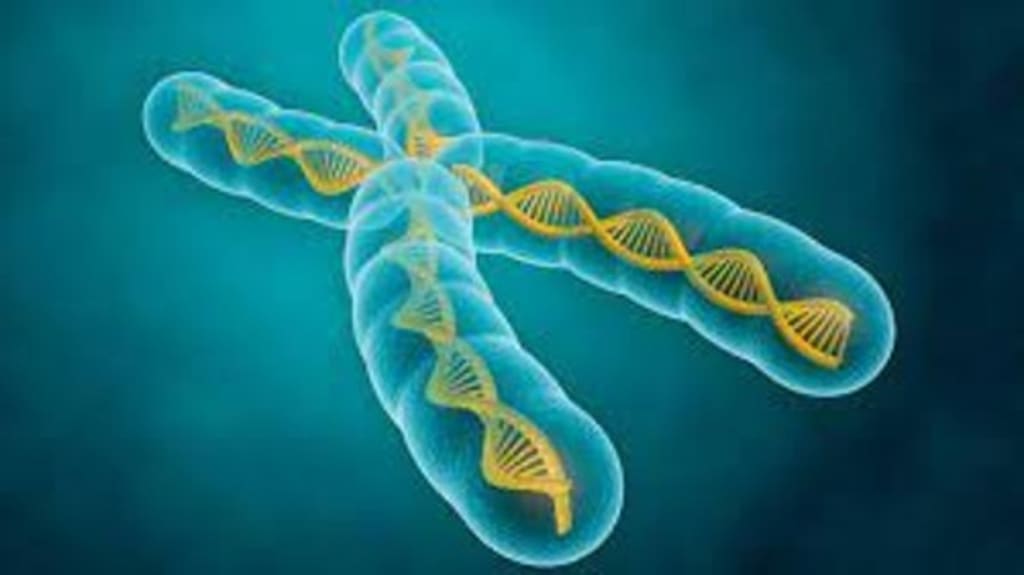Digging into Genetics - NCERT Biology Class 11
What is Genetics?

Genetics is the fascinating science of heredity and variation. In NCERT biology class 11, we get an introduction to fundamental concepts in genetics that shed light on how characteristics are passed on from one generation to the next. By studying NCERT solutions for class 11 biology genetics chapters, we can understand how genes determine the traits of organisms.
Mendel’s Pea Plant Experiments
Gregor Mendel, known as the "Father of Genetics", laid the foundation for genetics through his experiments with pea plants in the 19th century. In NCERT class 11 biology, we learn about his crossing experiments tracking the inheritance of traits like flower color and seed shape. Mendel deduced that factors (now known as genes) determining distinct traits are inherited independently in discrete units. This established that the principles of heredity follow predictable rules, not just randomness.
DNA - The Genetic Material
In NCERT solutions class 11 biology, the identification of DNA as the genetic material is a pivotal discovery. Chromosomes consisting of DNA molecules are the carriers of genetic information. DNA replication and protein synthesis form the basis for passing on traits from parents to offspring. Later experiments helped decipher the double helical structure of DNA and the genetic code consisting of four nucleotide bases. Overall, these landmark findings in biology unlocked the molecular basis of genetics.
Genetic Inheritance Patterns
NCERT class 11 biology also covers fascinating inheritance patterns observed in genetics. Simple dominance, incomplete dominance, codominance, and multiple alleles result in diverse inheritance of traits. We also learn how sex determination takes place in humans and other organisms. Studying genetics problems and pedigree analysis helps reinforce the patterns by which traits are expressed across generations.
Genetic Disorders
- Disorders caused by abnormal chromosome number or structure
- Single gene disorders like cystic fibrosis caused by gene mutations
- Multifactorial inheritance involves interplay of genes and environment
Chromosome Theory and Linkage
- Chromosome theory states genes are arranged linearly on chromosomes
- Linkage - genes close together tend to be inherited together
- Crossing over between homologous chromosomes leads to genetic recombination
From Mendel’s pea plants to gene-editing technologies, genetics has revolutionized our understanding of the living world. The NCERT class 11 biology chapters deliver an excellent introduction to key concepts, giving us an appreciation for the mysteries and potential of genetics.
Frequently Asked Questions on Genetics
Q: What did Gregor Mendel discover through his pea plant experiments?
A: Through crossing pea plants with different traits, Mendel discovered the fundamental laws of inheritance - the Law of Segregation and Law of Independent Assortment. This established that traits are controlled by discrete inheritable factors, now known as genes.
Q: What is the significance of discovering DNA as the genetic material?
A: Identifying DNA as the molecule containing genetic information was a huge breakthrough in genetics. It enabled scientists to understand how DNA replicates and codes for proteins that determine an organism's traits. This led to important advances like determining the DNA double helix structure.
Q: What is the difference between dominant and recessive alleles?
A: Dominant alleles will mask the effects of recessive alleles. For example, the allele for brown eyes is dominant over the allele for blue eyes. Only individuals that inherit two recessive alleles for a trait will express that recessive trait.
Q: How does gene linkage impact inheritance?
A: Gene linkage describes how genes close together on the same chromosome tend to be inherited together. Linkage reduces independent assortment of alleles. Crossing over between chromosomes can break linked genes apart.
Q: What kind of genetic disorders are caused by chromosomal abnormalities?
A: Disorders like Down syndrome are caused by having an extra copy of a chromosome. Deletions and duplications of chromosome segments can also lead to genetic conditions due to missing or extra doses of genes.
Q: What is multifactorial inheritance?
A: Multifactorial inheritance involves both genetic and environmental factors influencing a trait. Most common human diseases like heart disease, diabetes, and cancer have multifactorial causes.
About the Creator
Gaurav Mehra
I am a Chemistry Teacher at Infinity Learn and Teach students on YouTube for free. And here to help students through my blogs.
Enjoyed the story? Support the Creator.
Subscribe for free to receive all their stories in your feed. You could also pledge your support or give them a one-off tip, letting them know you appreciate their work.






Comments
There are no comments for this story
Be the first to respond and start the conversation.